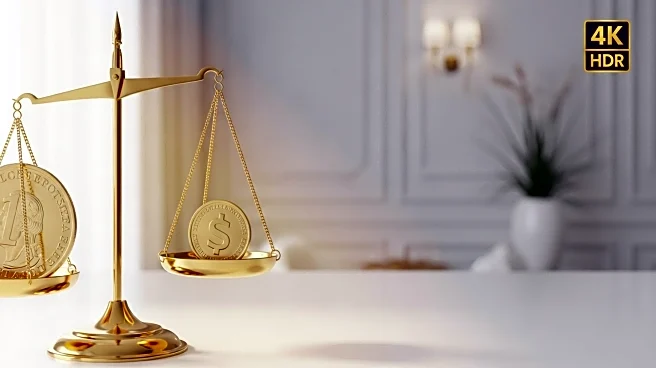What's Happening?
The Trump administration has announced a proposal to overhaul the H-1B visa lottery system, aiming to prioritize higher-paid and higher-skilled foreign workers. This proposal introduces a weighted selection process, replacing the current random lottery system. Under the new system, workers in the highest wage category would have multiple entries into the selection pool, while those in the lowest category would have fewer chances. The Department of Homeland Security argues that this change would better serve the visa program's original intent and incentivize employers to offer higher wages or skilled positions. The proposal follows President Trump's announcement of a new $100,000 fee on H-1B visas, which has sparked concern among companies and visa holders.
Why It's Important?
The proposed changes to the H-1B visa system could significantly impact U.S. industries, particularly tech companies that rely on foreign talent. By prioritizing higher-paid workers, the administration aims to reduce the use of H-1B visas for lower-paid positions, potentially affecting companies that hire foreign workers for computer-related jobs. This could benefit large tech firms that can afford higher wages but may disadvantage startups and smaller companies. The proposal also reflects ongoing debates about the balance between protecting American workers and leveraging foreign talent to drive innovation and economic growth.
What's Next?
The proposal will undergo a 30-day public comment period before being considered for a final rule, a process that could take several months. If implemented, the changes could face legal challenges, as both the fee and the weighted selection process have sparked controversy. Companies and stakeholders will likely engage in discussions and lobbying efforts to influence the final outcome. The proposal's impact on the tech industry and foreign workers will be closely monitored, with potential implications for U.S. immigration policy and labor markets.










